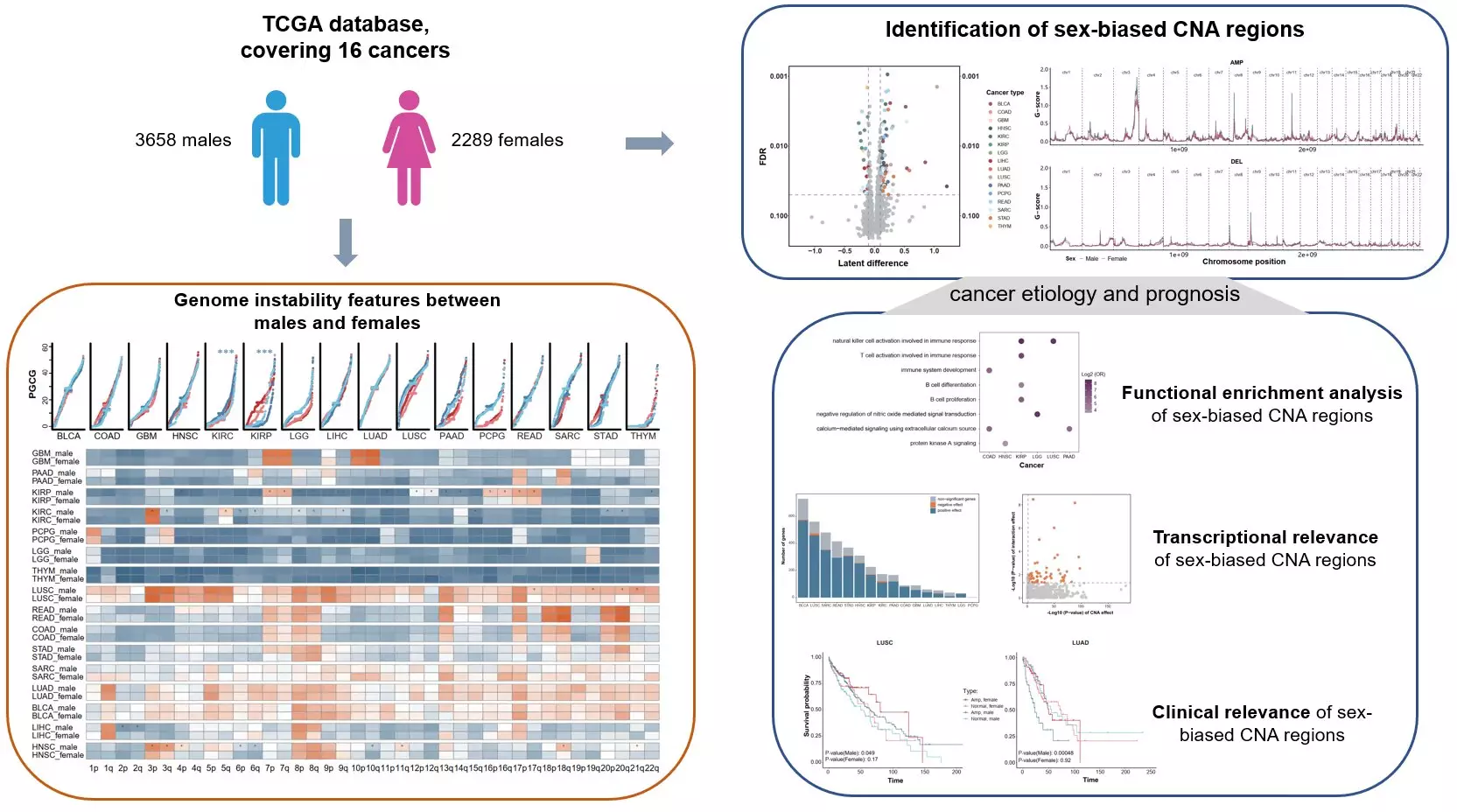Recent research conducted by Chunmei Cui at the State Key Laboratory of Vascular Homeostasis and Remodeling, Peking University, China, has shed light on the complex relationship between gender and cancer. The study, published in Health Data Science, highlights significant sex-specific differences in copy number alterations (CNA) across various types of cancer. These findings emphasize the need for a gender-specific approach in cancer prognosis and treatment.
The research reveals notable variances in genomic instability, particularly in kidney, lung, liver, and head and neck cancers. Sex-biased CNAs have a profound effect on gene expression, potentially serving as prognostic biomarkers. More than 60% of genes located in these CNA regions are significantly affected by these alterations, with around 14% of their mRNA abundance influenced by both gender and CNA. These insights pave the way for personalized cancer care, underscoring the importance of integrating gender considerations into prognostic models and treatment strategies.
The study’s methodology, which includes the CNGPLD tool, has proven to be more robust than traditional statistical approaches in detecting sex-specific genetic differences. Beyond the well-known sex disparities in lung and kidney cancers, the research also identifies critical sex-biased CNA regions in head and neck cancer and lower-grade glioma. This innovative approach broadens the potential applications of gender-specific biomarkers and treatment options, aligning with the principles of personalized medicine.
Looking ahead, Chunmei Cui envisions a future where these discoveries serve as a catalyst for the development of gender-specific biomarkers and therapeutic strategies. The next phase of the research will focus on validating these CNAs in independent cohorts and elucidating their roles in cancer mechanisms. The ultimate goal is to translate these findings into clinical practice, contributing to the advancement of personalized and effective cancer care.
The study by Chunmei Cui highlights the importance of considering gender-specific disparities in cancer research. By uncovering the influence of sex-biased CNAs on gene expression and cancer biology, the research opens up new possibilities for personalized medicine. It underscores the need for tailored approaches in cancer prognosis and treatment, emphasizing the significance of integrating gender considerations into clinical practice.

